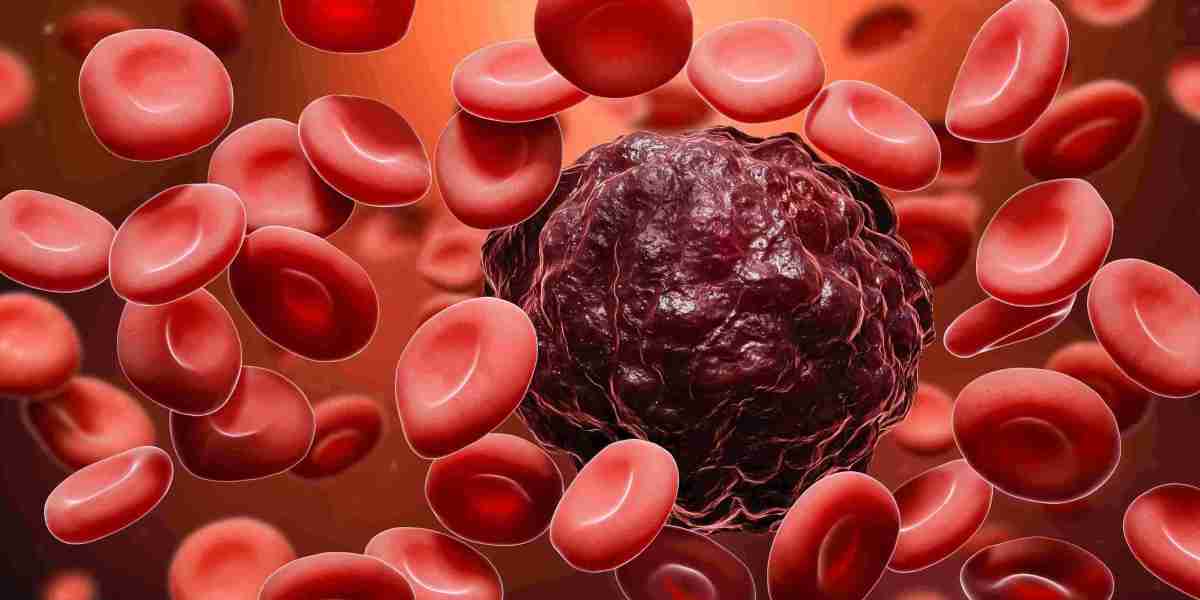Blood cancer is an insidious enemy that affects millions of lives around the world. Blood cancers, contrary to other types of cancers, do not show off symptoms and are not visible and therefore are termed as the ‘silent killer.’
Best Ayurvedic Cancer hospital in India suggests that detecting blood cancer early on enables one to overcome it; this presumably has now been accomplished. This article addresses the detection early, signs of blood cancer, how hematology can transform prognosis and therapy outcome.
Understanding Blood Cancer:
It consists of a fixed set of cancers that involve the blood, bone marrow and lymphatic device. The three main types of blood cancers include leukemia, lymphoma, and myeloma. These cancers develop from cells that produce blood, maintain the immune system and appropriate body defense.
Leukemia:
Leukemia is defined by the quick proliferation of abnormal white blood cells that displace normal ones. Acute forms are characterized by rapid progress, chronic ones – with slow development. The classification of leukemia includes ALL, AML, CLL and CML.
Lymphoma:
Lymphomas are diseases that strike the lymphatic system inflicting unnatural increase of cells known as lymphocytes which encompass white blood cells and play an important role throughout the immune reaction. There are two most important kinds of lymphoma, particularly Hodgkin and non-Hodgkin.
Myeloma:
Myeloma targets the plasma cells that produce antibodies as defense towards infections. The cease result is an accumulation of extraordinary plasma cells inside the bone marrow, as a consequence interfering with its everyday capabilities.
The Silent Nature of Blood Cancer:
The progression of blood cancers is silent until certain symptoms are detected during the late stages. This silent characteristic is the reason why early detection can be tough, requiring more awareness and preventive steps in health.
The Importance of Early Detection:
Improved Treatment Outcomes:
Best Cancer Hospital in India suggests that an early detection greatly increases the chances of successful treatment Diagnosing blood cancer early on helps minimize the treatment approaches that are more specific and less severe, which usually delivers better outcomes.
Reduced Treatment Intensity:
Early detection of blood cancer can allow less aggressive treatment regimens, thus minimizing the chances for potential side effects and improving overall quality life during and post-treatment time.
Prevention of Complications:
When blood cancers are left untreated they'll cause the development of complications like anemia, infections, and additionally weakened immune devices. Early intervention prevents such complications to maintain this overall health.
Enhanced Survival Rates:
Early detection is fantastically correlated with improved survival in blood cancers. Prompt analysis ensures early initiation of powerful treatments, enhancing the probability for favorable final results.
Opportunities for Targeted Therapies:
The progress in the field of medical research has seen therapies for blood cancers . Early detection allows access to these advanced forms of treatment that are effective and cause less side effects as compared with radiotherapy etc.
Potential Signs and Symptoms:
Although blood cancers might not cause immediate signs and symptoms, being aware about possible signs lets in early clinical assessment. It is essential to spotlight that these signs can also be associated with many other health conditions, which stresses the want for a clinical analysis before any conclusion.
Unexplained Fatigue:
Unexplained, chronic fatigue and weakness may be symptomatic of underlying conditions. It could be very essential to have a look at the source of fatigue, mainly if it remains even after sufficient rest.
Unexplained Weight Loss:
If a person loses weight without obvious reason, in conjunction with different symptoms, it is a medical emergency.
Frequent Infections:
Lowered immune function caused by blood cancer can make one more vulnerable to various infections. Recurring or severe infections, if there are no other diagnosed conditions should be investigated.
Swollen Lymph Nodes:
One of the warning signs for lymphoma is massive painful and persistent mass in enlarged lymph nodes. Although large lymph nodes may result from different processes, its determination should still be performed by a medical specialist.
Bruising and Bleeding :
Disproportionately high rates of bleeding and easy bruising result from abnormalities in blood cell production. Cases of spontaneous bruising or bleeding should be investigated particularly if they are not related to injury.
Bone Pain:
The bone marrow is affected in blood cancers, causing pain or discomfort in the bones. Recurrent painful bones, especially the spine or legs would require formal medical evaluation.
Night Sweats:
Non feverish and otherwise unexplainable night sweats may indicate that one is suffering from blood cancer. Other alarming signs accompanied by night sweats should be addressed through medical advice.
Conclusion:
Fighting the silent danger known as blood cancer starts with increased awareness, preventive health measures and early diagnosis. Knowing the possible signs and symptoms, along with frequent medical exams and screenings, enables people to control their health. Timely detection not only increases treatment options but also greatly improves the likelihood of success.
Blood cancer is unquestionably intricate, and as we journey along the path of its diagnosis, treatment should be in mind to health services; visit medical professionals for concerning symptoms but mostly propagating awareness within our communities. Together, we can make a difference in forming an inhabitable world for those who are affected by blood cancer – where they will be given courage with the awareness and tools to battle through this aggressive disease. Remember that early detection is a formidable weapon in the battle against blood cancer-let us use this with our best efforts.







